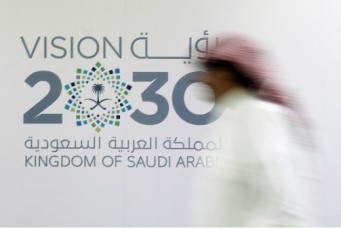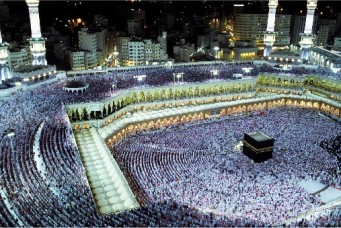The Limits of Reform in Saudi Arabia
The man who heads Saudi Arabia’s infamous religious police made headlines recently when he publicly acknowledged that “Islamic sharia does not have a text forbidding women driving.” For many Saudis, this statement signaled a possible sea change in attitudes among the country’s hard-line religious establishment, at least on that issue.
The man who heads Saudi Arabia’s infamous religious police made headlines recently when he publicly acknowledged that “Islamic sharia does not have a text forbidding women driving.” For many Saudis, this statement signaled a possible sea change in attitudes among the country’s hard-line religious establishment, at least on that issue. A source within the religious police later said they will not pull over and arrest women they see behind the wheel.
Saudi women are likely to put these assurances to the test on October 26, when activists have encouraged women throughout the kingdom to go out and drive. Nothing is yet certain, but activists believe we could be witnessing the end of the ban on women driving in Saudi Arabia.
This should not come as a surprise to Saudi watchers. In recent years, Saudi Arabia has made several largely symbolic—yet nevertheless significant—advancements in women’s rights. Women will be able to stand as candidates and vote in municipal elections, next due in 2015. Under new regulations they can now work in various sectors without having to obtain their male guardian’s approval. And in January the King appointed 30 women to the Shura Council, his senior advisory body.
King Abdullah has been slowly and cautiously delivering on his pledge when he assumed the monarchy in 2005 to improve the status of women. And he has been bucking the opposition of religious hard-liners to push through controversial measures. This augers well for women’s prospects in Saudi Arabia, whichlimits women’s economic potential more than any country in the world, according to the World Bank. Yet Saudi women are still far from being able to participate in society on an equal basis with men. The guardianship system, which treats women as legal minors in many aspects of their lives, still looms over Saudi women.
That’s not the only concern, though. For Saudi human rights and civil society activists, the small advances have a more sinister side. They generate a stream of positive headlines that tend to mask the all-out assault the authorities are have been waging against activists, especially those who advocate reform of the country’s arbitrary and unfair criminal justice system.
Under the flood of women’s rights reform stories the government’s crackdown on rights activists has largely escaped international notice, yet it speaks volumes about the government’s attitude toward reform.
Many people know that Saudi Arabia now permits women to ride bicycles under certain restrictive conditions. But probably far fewer are aware that Saudi courts imposed jail terms on at least seven leading civil society and human rights activists so far this year, convicting them of “attempting to distort the reputation of the kingdom,” “setting up an unlicensed organization” and other catch-all charges. Others are on trial. Authorities have banned dozens of others from travelling abroad, and subjected them to criminal investigations or other harassment.
Saudi Arabia still refuses to allow non-charity nongovernmental groups to operate in the country lest they become an avenue for legal opposition to official policies.
It is all too predictable that very entity that activists criticize – the criminal justice system – is at the heart of efforts to silence them through intimidation, or failing that, incarceration.
The treatment of Mohammed Al-Bajadi, an activist with the Saudi Civil and Political Rights Association (ACPRA), is a case in point. Authorities arrested Al-Bajadi in March 2011 after he led a small sit-in outside the Interior Ministry on behalf of families of detainees the government has been holding arbitrarily, some for years. In 2012 the Specialized Criminal Court—Saudi Arabia’s terrorism tribunal—sentenced him to four years in prison in a secret trial. He has gone on hunger strike several times to protest his imprisonment and alleged ill-treatment in detention, including prolonged solitary confinement.
In August, authorities released him briefly, dropping him off on a desert highway, but they re-incarcerated him days later, after he spoke about his experiences in detention.
The ACPRA activists Mohammed Al-Qahtani and Abdullah Al-Hamid received even heavier prison sentences in early 2013—10 and 11 years respectively—on charges including “breaking allegiance with the ruler” and “setting up an unlicensed organization.” Both men had called for criminal justice reform.
Mikhlif Al-Shammari, an activist who has sought to foster improved relations between Sunni and Shia Saudis and championed women’s rights, is awaiting an appeals court decision on his five-year sentence, imposed for “sowing discord” and “trying to distort the reputation of the kingdom.”
Authorities have targeted women’s rights activists themselves, including Wajeha Al-Huwaider and Fawzia Al-Oyuni, convicted of “inciting a woman against her husband” for trying to help a woman who claimed that she and her children had been locked in their home without food or water.
These convictions directly contradict the reform narrative that Saudi officials are energetically promoting. They also point to an ultimate ceiling on women’s rights reforms—the right to exercise the fundamental freedoms of expression, assembly, and association.
Women may be able to run for local municipal councils, but they shouldn’t expect to exercise the right to free expression if they get elected. Women may have greater ability to join the workforce, but they can forget about the right to unionize or bargain collectively.
As the ACPRA prosecutions make clear, Saudi authorities aren’t ready to change their intolerant attitudes toward citizens who criticize government policies. And in this intolerance they do not discriminate on the basis of sex.
Adam Coogle is a Middle East researcher at Human Rights Watch who monitors events in Saudi Arabia.
Subscribe to Our Newsletter




